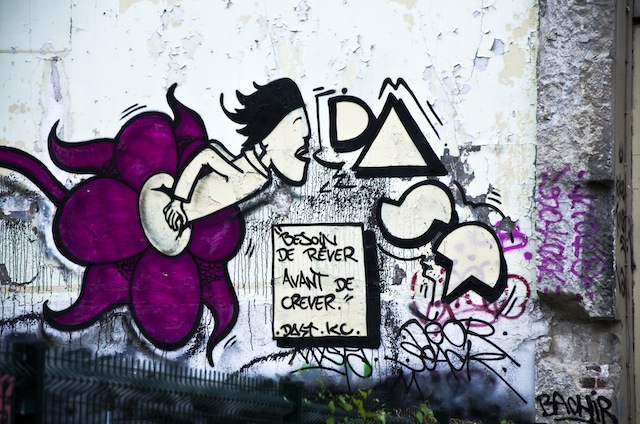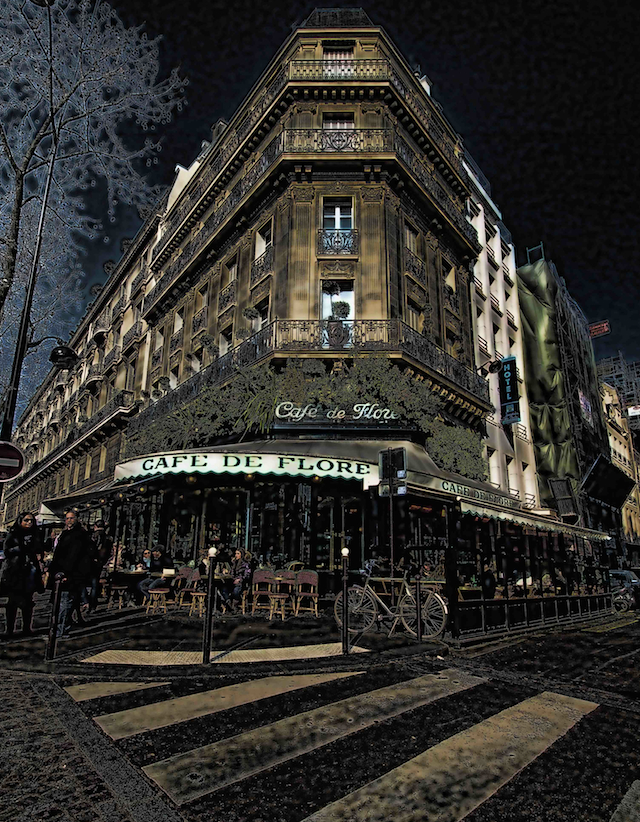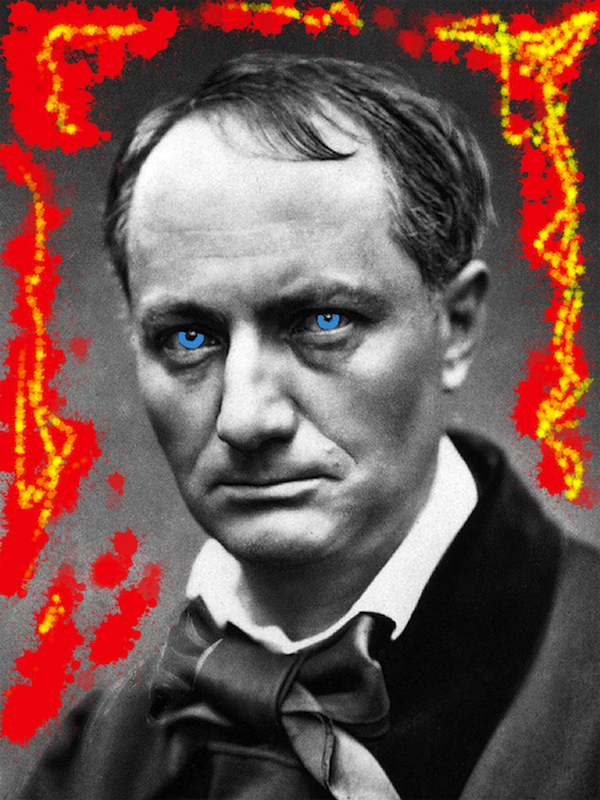The Magic Thread
 10.14.2011
10.14.2011 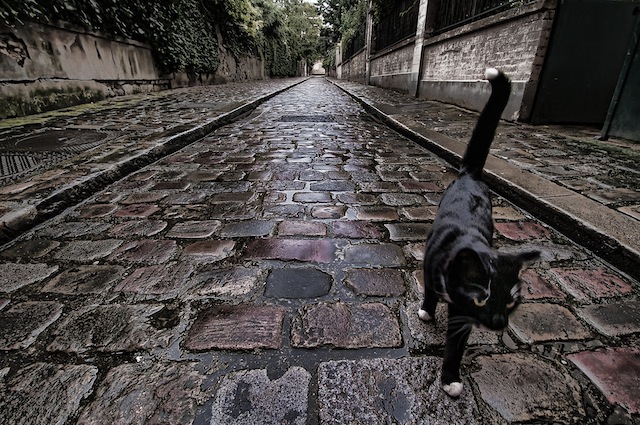
I once walked on the beach at Playa del Rey with the poet, Jack Gilbert. He talked about the difference between poetry and prose. Poetry has an element of magic, he said.
The world is a magical place. You don’t need the Surrealists to tell you that, though we do love works of art like Andre Breton’s Nadja that dramatize this web of connections beneath the surface of reality.
This magical synchronicity seems to happen more with certain people than others. Listen to what happened when Willis and Sarah came to Paris a few months ago this summer:
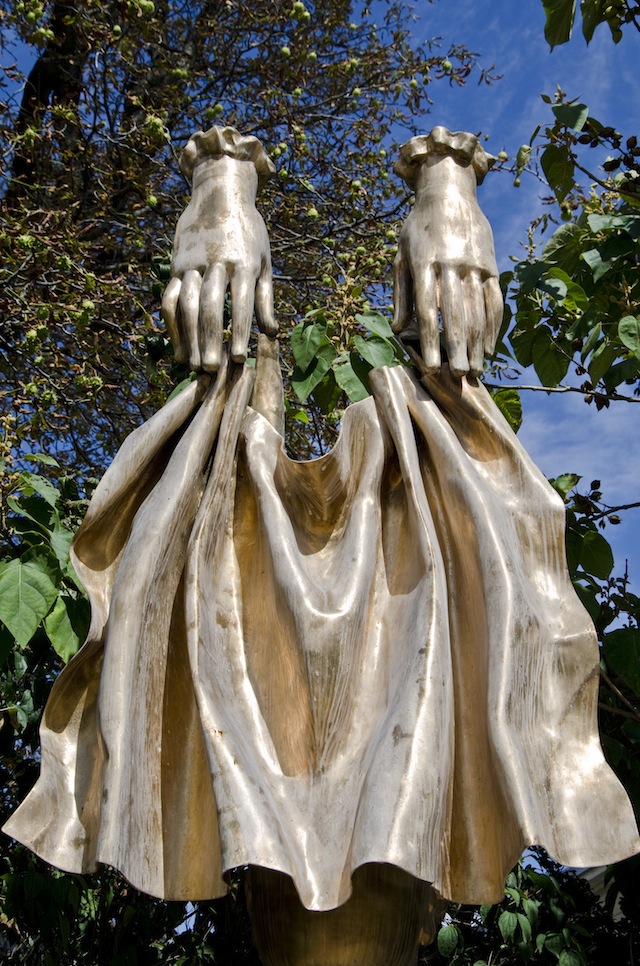
For you to fully grok these coincidences, I have to first introduce you to the dramatis personae—six people, many, but not all, of whom already knew each other. They are:
Willis, poet and translator.
Sarah, Willis' wife, expert on, and author of, books on Chinese furniture, architecture and art.
John: food writer and cartoonist.
Varda: psychologist.
And Richard and I, poetic and mythical string surrealists.
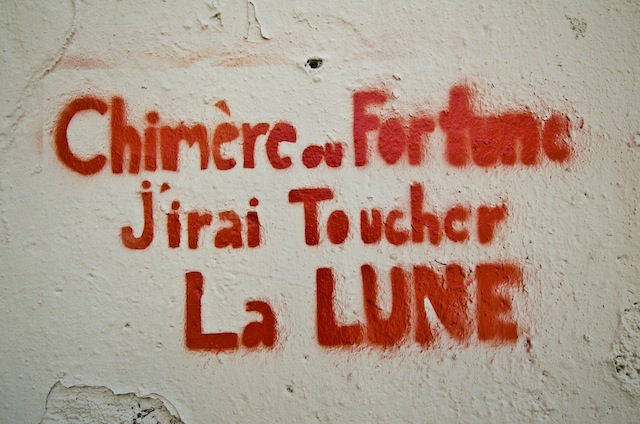
Six people who have all spent varying amounts of time in Paris:
Willis first came to Paris in 1948 for a year at the Sorbonne. He knew The Father of Dada, Tristan Tzara. Willis wrote poems then, and writes poems now—some forty or so this Paris trip, during the couple of months he and Sarah spent in July and August.
Richard and I have been coming to Paris individually for years, and together since our honeymoon in 1997, and now live here.
John was in Paris for two months this summer, as he was last summer, when we introduced him to Varda, who’s lived here since the ‘90s.
(The thread goes back further, but more on that later.)
Richard and I were to meet Willis and Sarah for café at Les Deux Magots. When we arrived, there were no tables for four outside, so we settled in at two tables in the glassed-in section between the sidewalk café and the interior, with a view of the street.
We arranged the tables so that they would have the best view, which is what you do with friends. But until they arrived, we’d sit facing out, in order to spot them.
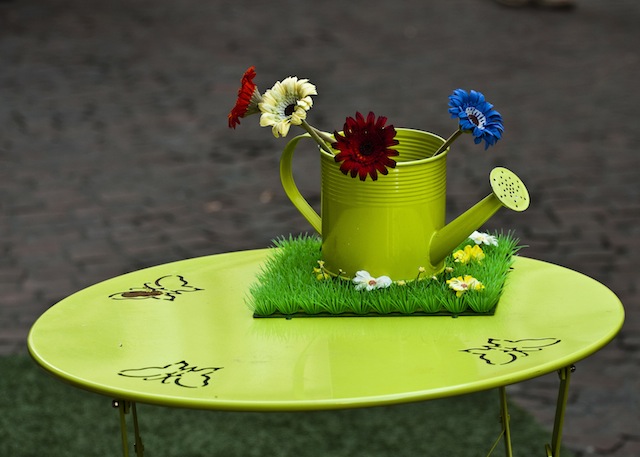
Who should we spy but John, who happened to stroll by and sit down at a table near the entrance. This spot has special resonance for us. It’s where we drew the picture in our Dream Book two years ago of our plan to move to Paris, back when it seemed a mirage.
Richard tapped John on the shoulder, and invited him to join us. John sat down with us (surprise! We’d never bumped into each other in Paris before.)
A few minutes later, Willis and Sarah arrived.
I’d last seen Willis at an Eco-poetry festival that Richard and I had produced at Ballona Wetlands, where Willis read his poems. Richard had seen him more recently in the Bay Area where they began their quest for abandoned shoes chronicled in an earlier post.
I hadn’t met his wife, Sarah, yet. She was shy and graceful, an Asian art historian in pearls.
Though in his 80s, Willis has the zest of a young boy. We introduced him and Sarah to John, who happens to live most of the time right near them in the Berkeley-Oakland hills.
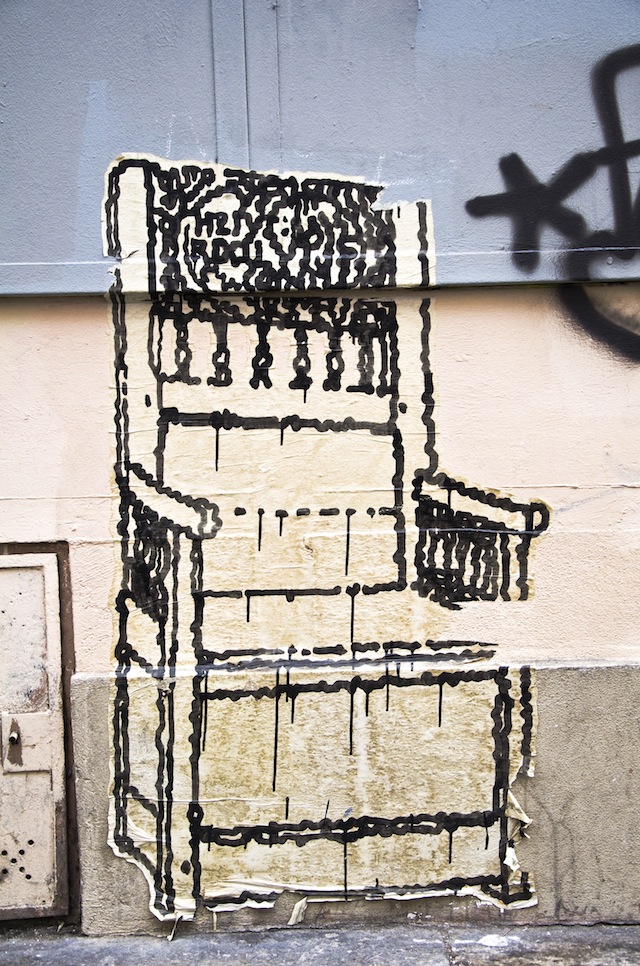
We ordered drinks. John was only able to stay with us for fifteen minutes, he said; he was meeting our mutual friend, Varda, for dinner.
“Varda,” said Willis. “A girl named Varda broke my heart when I was 10 years old. I kissed her, and the next day she brought me an envelope, which I opened with excitement to find another envelope, and inside that was another one, like Russian nesting dolls, and finally in the center… nothing.” He mimicked being crushed. “So I knew my love was hopeless.”
We knew that Willis had lived in New York City as a child, which would have been more than seventy years ago.
“This Varda lived in NYC,” I said. I felt a thread pulling taut.
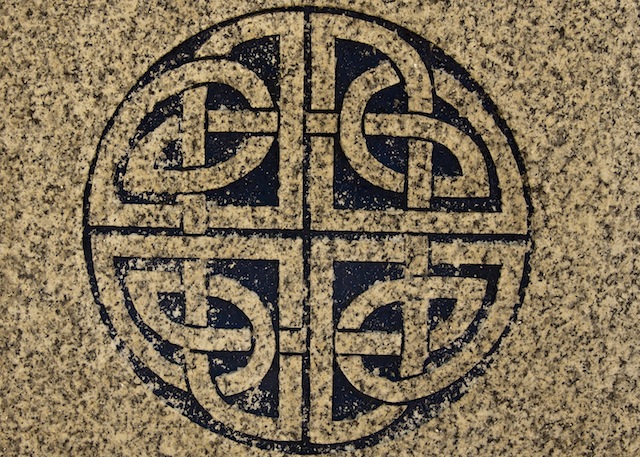
He mentioned her last name.
I had traveled in Vietnam with her, and had learned her maiden name. “It’s the same Varda!” I exclaimed.
All of our mouths fell open. What were the chances that John would walk by, stop at Les Deux Magots before dinner, join us and Willis and Sarah, mention within fifteen minutes the name of the friend with whom he was having dinner, and that she would be Willis’s first (though unrequited) love, whom he hadn’t seen in over 70 years? 70 years bridged in fifteen minutes.
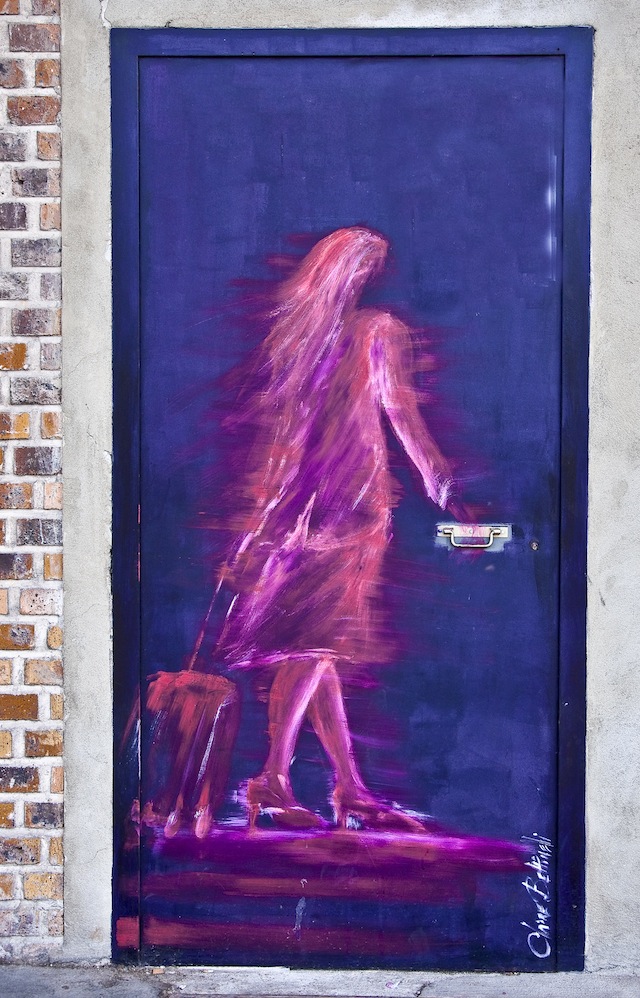
John was flabbergasted.
But we were about to go out of town to a friend’s wedding. “Please, please wait for a few days to have the reunion—we’d love to be there!” we pleaded.
Later we learned that John was so excited to tell Varda the story that he turned it into a game of “This is Your Life” over dinner. At first she didn’t recognize Willis’s name, then suddenly the memory of a T-shirt that Billy wore broke through.
But in spite of John’s request, Varda couldn’t wait to have the reunion.
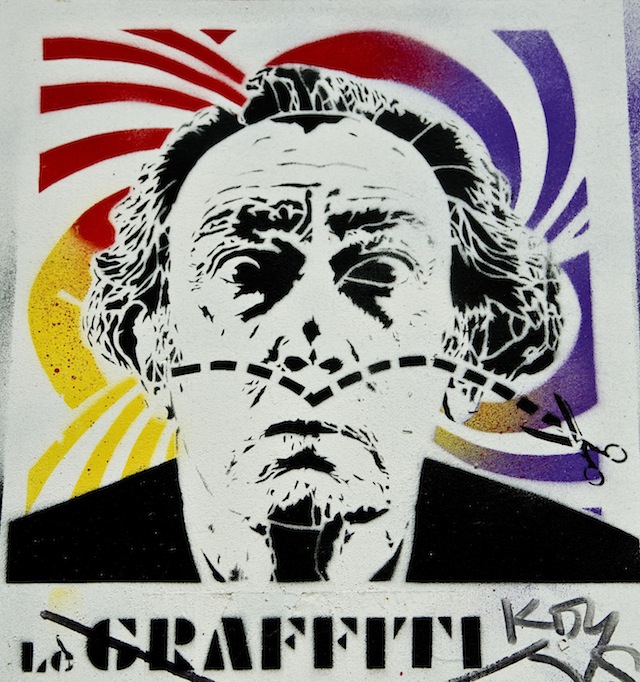
We were disappointed, since we had an overwhelming desire to see this magical thread that extended from us to Willis to John to Varda and back 70 years in time to another continent--a Paris play!--reach its dramatic fruition.
But we heard about it from John.
Later, musing on the thread connecting us all, I thought about its further reach.
I remembered the night in Paris that Richard and I arrived at our apartment, anticipating that the renovation would be complete, and discovered that all the walls had been painted gray-green, which gave us the feeling of being a couple of peas in a bowl of pea soup.
We had to move into a temporary apartment on rue du Bac, while our apartment was being re-painted. Now our plans to begin furnishing the place were so delayed, we couldn’t possibly finish it in the time we had.
We sprawled on two couches in the rue de Bac apartment, feeling depressed. (Oh, you poor things, stranded in the 6th arrondissement in Paris.)
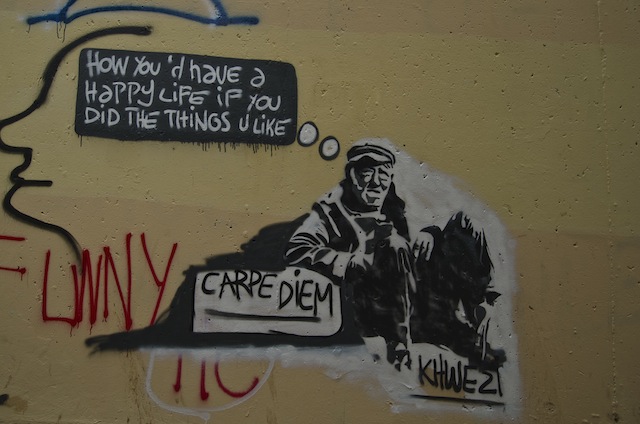
Let’s call Connie, Richard suggested. And we did. We had never met her, but my friend, Carol, had been urging us to meet for several years.
Connie invited us to join her and several friends in one hour for a film and dinner. It was a Ronald Colman film, based on Oscar Wilde’s play, Lady Windermere’s Fan.
More synchronicity! We happened to live in the beach shack Colman once owned in Playa del Rey. That night, we met Connie, Susan, Diane and Varda all for the first time.
Connie was the cousin of a good friend from my years in Santa Fe. I’d met Carol one night at a restaurant where I was reading a book of poems by Denise Levertov. She greeted me, and I soon joined her poetry workshop.
The thread that connected Carol and me was poetry.
The thread that connected Willis and Richard was poetry.
And the thread that connected Richard and me to John and Connie and Varda and back to Willis and Sarah was the poetry of the universe.
